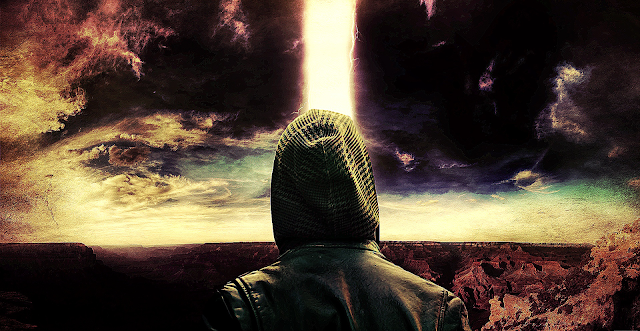Mourning to Morning
“The total amount of suffering per year in the natural world is beyond all decent contemplation. It must be so. If there ever is a time of plenty, this very fact will automatically lead to an increase in the population until the natural state of starvation and misery is restored. In a universe of electrons and selfish genes, blind physical forces and genetic replication, some people are going to get hurt, other people are going to get lucky, and you won't find any rhyme or reason in it, nor any justice. The universe that we observe has precisely the properties we should expect if there is, at bottom, no design, no purpose, no evil, no good, nothing but pitiless indifference.”
― Richard Dawkins, River Out of Eden: A Darwinian View of Life
With the passing of an individual comes the passing of certain ideals,
certain ways of perceiving the world. However, in memory of this person’s life, we may lose sight of our own unique experience of the world around us. One could say that each and every human life is an opportunity to expand this experience. Yet, when we’re in so much pain, seeing the future in a positive light becomes an exercise in futility, or so it seems. This may lead to a sort of victim mentality in which we believe that we are defined by our circumstances, if we let it.
Expanding our potential while being in a state of emotional turmoil is, of course, easier said than done. However, I do believe that striving for a vision larger than oneself allows us to overcome our immediate suffering. Traumatic events such as the death of a loved one can stagnate our progression in life, causing us to lose track of this so-called “transcendent ideal”. Yes, that does sound over-the-top. Then again, looking past our struggles requires for there to be a personal value that holds more weight than our emotions.
Unfortunately, the abandonment of our deepest-held ideals becomes all-too-tempting when we see the values of our loved ones slip away before us. After all, if the universe won’t let them hold on to their values, why should we hold on to ours? Why should we strive for something beyond contentment when they weren’t able to do so? Sometimes, having the courage to expand our notions of what’s possible is the only way to honor the values of our beloved.
When we are forced to let go of an individual, forsaking our self-imposed limitations may be the best way to honor their memory. This process of becoming more than our circumstances, more than our comforting satisfaction will come with a heavy price, and that is the fact of perpetual hardship. Accepting the burden of aspiration is the best we can do to cherish the meaning of their life, and in turn, the meaning of our own.



Comments
Post a Comment